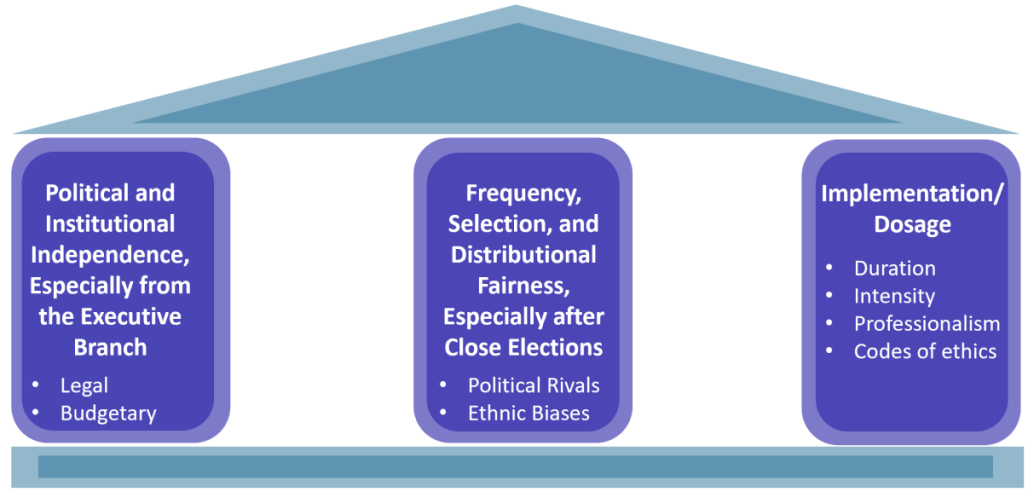Measuring Corruption Using Governmental Audits: A New Framework and Dataset
Presented at the European Consortium for Political Research (ECPR) General Conference.
For about 25 years, empirical scholarship on corruption has primarily relied on perceptions data, but the drawbacks of these measures are ample and well-known. More recently, analyses centered on Brazil have showcased the utility of randomly assigned audits as a more objective alternative to perception-based measures. However, Brazil is the only country with randomized audits and has many unique institutional features that limit the external validity of the numerous studies using the Brazil data. In this paper, I provide a new framework to assess the quality of audit data even when they are not randomly assigned. Specifically, I show that experimental or observational audit data are most credible to measure corruption when: 1) the auditing institution legally enjoys political/institutional independence, particularly from the executive branch; 2) the distribution of audits does not exhibit biases toward any particular group, especially political rivals following close elections; and 3) the implementation/dosage is consistent across similar types of audits. I demonstrate the utility of the framework by analyzing a massive new dataset of subnational audits from India, Mexico, Honduras, and Guatemala. The new data and framework proposed in this paper will help researchers undertake more objective analyses of governmental corruption around the world. [Draft Paper]

